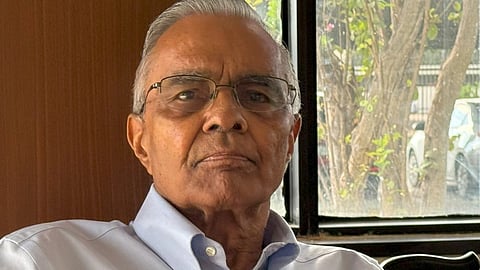Even as the company expanded, his health collapsed. At 35, he was struck by severe chronic fatigue syndrome. “The doctors tried everything — acupuncture, medicines. Nothing worked,” he said.
For 35 years, he endured exhaustion so intense he sometimes struggled to stand. Then a yoga therapist suggested mantra therapy. “After it went, it never came back,” he said. “But by then, my heart had become very weak.”
A bypass surgery was performed in 2008, followed by four stents. “Still, the problem didn’t get resolved,” he said. “The heart had become too weak.”
When doctors finally recommended a transplant, he braced himself for rejection. “Normally, after 70, they don’t do it,” he said. But his surgeon made an exception.
Three months later came the call. “That heart fit only me,” he said softly. “Grace of God.”
Today, he credits his survival to “family, staff, friends — and God’s hand.”
A businessman’s view of India


